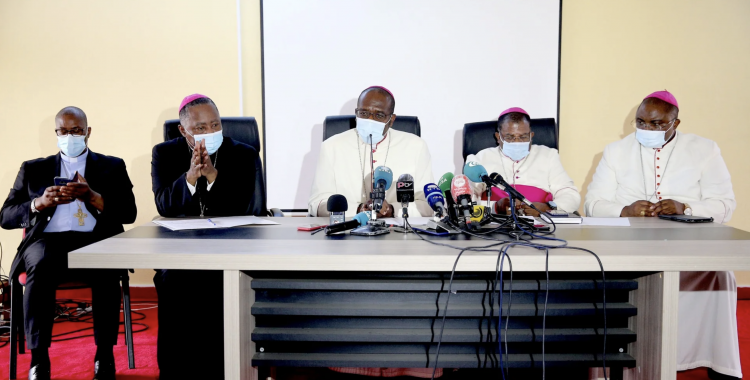"That a state of emergency in the south of the country be declared to allow aid from the international community and that the PIIM [Integrated Intervention Program in Municipalities] prioritize programs to fight hunger and poverty," recommended the angolan bishops at the end of their second annual assembly.
The conclave of the bishops of the Episcopal Conference of Angola and São Tomé (CEAST) began on 6 October and ended with a press conference in Luanda, where analyzes and findings on the religious and socio-political situation in Angola were presented.
Regarding the request for a state of emergency in southern Angola, explained Bishop Belmiro Chissengueti, spokesman for CEAST, "is due to the fact that the drought has been long" and the fact that "when declaring a state of emergency gives the possibility of receiving external support".
"We need this support and we must not confuse hunger with a political issue, we must be humble and have the capacity to say [that] our efforts have reached a certain possibility," said the bishop of the diocese of Cabinda.
Thousands of people, including adults and children, suffer the consequences of drought in the south of the country, with reports of "extreme hunger, deaths and malnutrition", derived from the long drought, a situation that contributes to the "forced emigration" of angolans to the countries border crossings.
The situation of drought and hunger in the south of the country has been monitored by the authorities, especially the President of the Republic, João Lourenço, who in recent years has visited some affected regions and announced the construction of infrastructure and the channeling of food aid to help to populations.
The CEAST bishops defended that, in order to respond to the situation, the Angolan authorities "must ask for international help, which is not a favor that is done, as Angola is part of this international community and has its share in international organizations".
"When rice trucks are robbed in broad daylight in Benguela, when we find people in garbage containers, even here in greater Luanda, and in many other places, I think we don't need a microscope to assume our weakness, but we do need to let us assume the present moment to save lives," exhorted Belmiro Chissengueti.
The plenary also elected the angolan archbishop of Saurimo, José Manuel Imbamba, as the new president of CEAST and the bishop of Dundo, Estanislau Marques Tchindecasse, vice president of the ecclesial college, for the 2021-2024 triennium.
The CEAST bishops also "congratulated" the way in which the presidential elections were held in São Tomé and Príncipe and promised the new President of the country, Carlos Vila Nova, "a fruitful and peaceful performance of his office".
Several angolan socio-political entities were received by Catholic prelates during the working days of the plenary, which ended this Monday, including Adalberto Costa Júnior, until then president of UNITA, and members of the Superior Council of the Judiciary.







